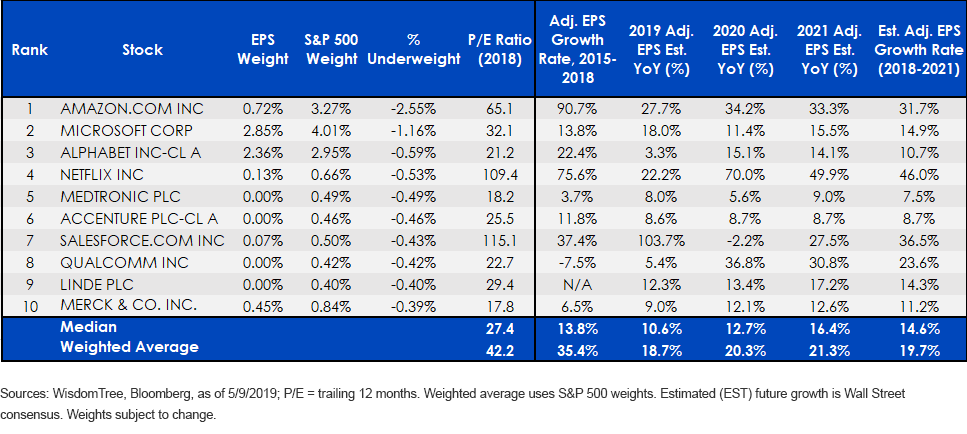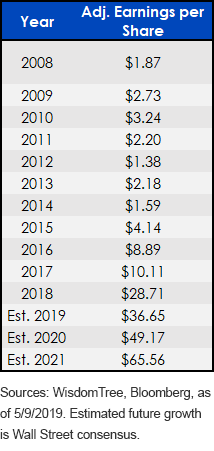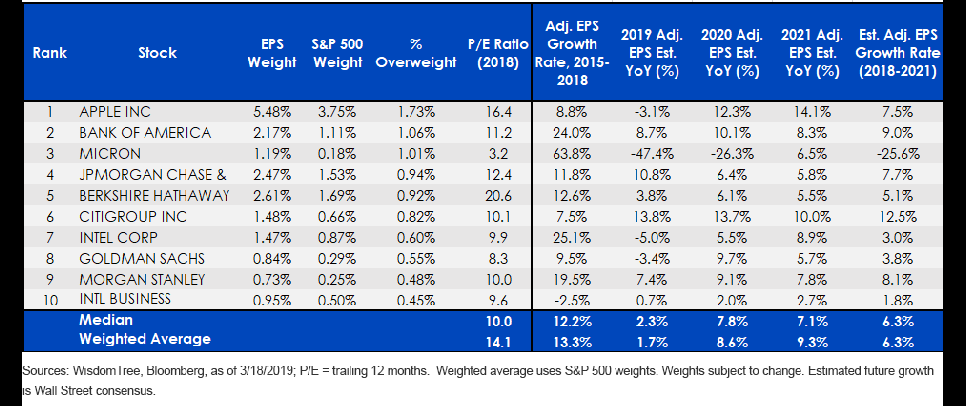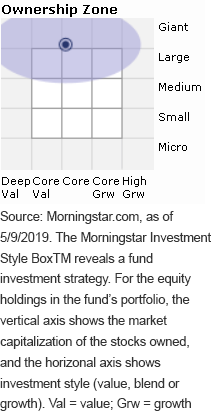Why Stop at 65 Times Earnings?


Amazon is trying to take over the world, right? At 65, its price/earnings multiple anticipates perfection. At some point you hit reality: a company that is valued at $919 billion, rallying hard for years, may be underestimating the very real possibility that someone in Washington will step in and break it up.
Democratic presidential hopeful Elizabeth Warren wants to cut a handful of large tech companies down to size. If Donald Trump’s more than two dozen anti-Amazon tweets are any indication, he may also be on the case. Currently, the company is the most underweighted holding relative to the S&P 500 in the WisdomTree U.S. LargeCap Fund (EPS), our 8 bps twist on beta (figure 1).
Figure 1: EPS’s Largest Underweights vs. S&P 500

Amazon bulls point to the company’s impressive 91% annual earnings growth in the three years ending 2018. But that may be the company’s Achilles’ heel: the ghost of Teddy Roosevelt could look at figure 2 and think, “Standard Oil.”
Figure 2: Amazon through the Years: Adjusted Earnings per Share

Figure 3 shows the WisdomTree U.S. LargeCap ETF’s largest overweights. Because companies are ranked by the quantity of their earnings, it picks up Apple and a handful of financial giants, among others. Currently, the former is not as much of a breakup candidate as some of tech’s other political targets, partly because it is engaged in a fierce smartphone battle that has the Street anticipating a 3.1% earnings decline this year.
Yes, the banks have been a regulatory risk since the financial crisis, but the Street is sober on them, with companies like Goldman Sachs trading for eight times last year’s earnings. Hardly bubbly.
Figure 3: EPS’s Largest Overweights vs. S&P 500

If Teddy Roosevelt makes a comeback, investors may want to reconsider their allegiance to cap weighting.
Currently, EPS is a Morningstar 4-star fund1 despite two headwinds: it had the hurdle of a 0.28% expense ratio for many years (we dropped it to 0.08% in March). Also, it skews toward value within the core and has been facing a market that favors growth stocks since we launched it in 2007 (figure 4).
Figure 4: Morningstar Style Box: WisdomTree U.S. Large Cap ETF (EPS)

With the fee drop, we are putting EPS head-to-head with the meat of the portfolio’s core—up against all these index funds that are loaded with Facebook, Amazon and the rest. If Teddy reappears, EPS’s under-weight to Big Tech may be just what the doctor ordered.
1As of 3/29/19 Overall rating based on risk-adjusted returns out of 1,218 funds for the US Fund Large Blend category
Important Risks Related to this Article
There are risks associated with investing, including possible loss of principal. Funds focusing their investments on certain sectors increase their vulnerability to any single economic or regulatory development. This may result in greater share price volatility. Please read the Fund’s prospectus for specific details regarding the Fund’s risk profile.
References to specific securities and their issuers are for illustrative purposes only and are not intended to be, and should not be interpreted as, recommendations to purchase or sell such securities.


